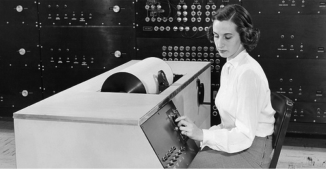
I’m currently studying how the everyday work-learning practices of the entrepreneurial workforce are changing through the infusion of web and mobile technologies. The data in this study suggests that increasingly sophisticated digital fluencies have come to matter in online work and learning practices.
I prefer the term fluencies to literacies in an attempt to move beyond narrow conceptions of skill and instead to the confluence of digital expertise, responsibility, criticality, innovation, and wellbeing in human-technology interactions.
Others also offer different views of digital literacies. Gourlay, Hamilton, and Lea (2013) push back on conceptions of literacy—digital or otherwise—enacted as “tick-lists” associated with the “individual idealised ‘user’” (p. 8) and the rhetoric of competency-based agendas. Instead, they view literacies as a set of situated social practices couched within a critical perspective. Knox and Bayne (2013) take this further, arguing that digital literacy should be conceptualized as a “practice always and already enmeshed in composite socio-material assemblages, in which human involvement needs to recognized as partial, irreducible, and sometimes modest” (p. 13).
It is in this spirit that the fluencies enacted in this research project are presented. Digital fluencies are, therefore, not limited to human capabilities to “drive” technologies, but rather an attempt to acknowledge the many human and non-human actors caught up in very complex performances of encoding, decoding, and recoding learning practices.
Indeed, these fluencies may also provide insight into new posthuman—or more-than-human—fluencies enacted within work-learning practices. Gourlay (2011) describes posthumanist literacies as “practices of meaning-making in a context where the boundaries between analogue and digital, ‘human’ and ‘machine’, are ambiguous and problematic” (p. 1).
Fluencies I noted in other work surface in this research project and include capabilities to engage with issues around privacy, online identity, data security and ownership, insidious surveillance and sophisticated analytics, intellectual property protection, and rampant and often subversive online commercialisation activities (i.e., Thompson, 2012). Emerging from this research project are four additional fluencies, including capabilities to:
- navigate scale: flipping from one-to-one to many-to-many to one-to-many ways of connecting in often fast-paced changes of configurations
- negotiate openness: when/how to be present and absent, the different ways in which the tracings of presence and absence are encoded, and the blurring of professional—personal spaces
- “wayfind”: cultivate digital channels to encounter the comings and goings of others and their artefacts (in the spirit of Ingold, 2000) and in the process disrupt binaries of here-there, global-local, online-offline
- manage the economy of peer production.
The ideas listed here are only a snapshot of capabilities that the participants in this study struggled to understand and manage. And we cannot forget the other actors in these assemblages: the digital things. How do they become part of this discussion? As our agency as workers and learners is increasingly shared with digital materialities, the challenge will be to learn to speak with things in our more-than-human lived realities.
In identifying some of the fluencies this study highlighted the complexity of often-taken for granted and mundane activities. These fluencies, however, cannot be addressed in the same way many ICT-based competencies are envisioned as neat progressive steps. These are not skills a person learns once and then moves on. Engaging with each of these fluencies will open up a complex dialogue with ethical, political, and economic overtones. And the discussion will change in six months and a year from now, as new understandings and practices emerge.
There are implications within the current discourse of the digital economy, digital workers, and lifelong learning. The significance of labeling these as fluencies and moving away from simplified notions of expertise towards criticality, responsibility, innovation, and wellbeing, is to work towards a deeper and more informed debate on the issues that are at the root of each of these fluencies. A debate that will be richer (and likely messier and noisier) by engaging multiple stakeholders, including the things themselves.
Gourlay, L. (2011). Cyborg literacies and the posthuman text. Paper presented at the Workshop on New Media, New Literacies, and New Forms of Learning, December. Retrieved from http://blogs.ubc.ca/newliteracies/files/2011/12/Gourlay.pdf
Gourlay, L., Hamilton, M., & Lea, M. R. (2013). Textual practices in the new media digital landscape: messing with digital literacies. Research in Learning Technology, 21: http://dx.doi.org/10.3402/rlt.v21.21438
Ingold, T. (2000). The perception of the environment: Essays in livelihood, dwelling, and skill. Abingdon, UK: Routledge.
Knox, J., & Bayne, S. (2013). Multimodal profusion in the literacies of the Massive Open Online Course. Research in Learning Technology, 21: http://dx.doi.org/10.3402/rlt.v21.21422
Kreiss, D., Finn, M., & Turner, F. (2011). The limits of peer production: Some reminders from Max Weber for the network society. New Media & Society, 13(2), 243-259.
Thompson, T. L. (2012). I’m deleting as fast as I can: Negotiating learning practices in cyberspace. Pedagogy, Culture & Society, 20(1), 91-110.
I started to write about these new fluencies in a recent conference paper:
Thompson, T. L. (2014, April). Mobile work-learning: Spatial re-orderings and digital fluencies. Paper presented at the Ninth International Conference on Networked Learning, Edinburgh, Scotland.

